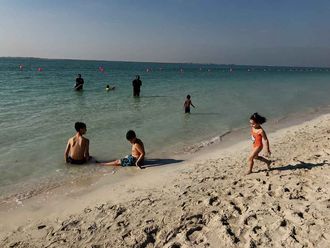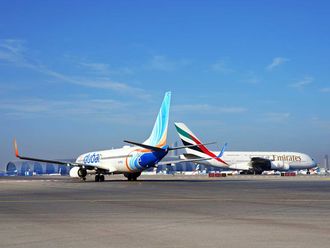Dubai: A study by the Knowledge and Human Development Authority (KHDA) has revealed that Emirati parents prefer sending their children to private schools, driven by a general belief that they have an edge over public schools in terms of quality of education.
Conducted by the KHDA and the Centre for British Teachers (CfTB), the study found that 58 per cent of UAE nationals choose private schools over public educational institutions, despite the fact that public schools offer free education for UAE nationals.
The survey found that private schools are perceived as having better standards of teaching and English language instruction besides convenient locations, better school leadership and a wide range of extra-curriculur activities.
Half of all respondents associated private education with a higher quality of teaching and learning.
The results of the study were revealed at the Education Investment Conference 2012, which also addressed growth and partnership opportunities in the private education sector in the region.
KHDA director general Dr Abdullah Al Karam told Gulf News that the private education sector has continued to witness growth even during the economic downturn. He said higher education avenues in the UAE have grown 10-fold over the last decade, with 37 international branch campuses now active in the country.
“Almost all sectors have dropped during the economic crisis, the only sector that continued to grow was the private education sector. This just shows how resilient this sector is as people can cut on cost of cars or houses but they can never cut on the quality of education,” he said.
A report released this year by the Observatory on Borderless Higher Education (OBHE) revealed that Dubai has the largest international hub of overseas campuses.
Speaking at the conference, Dr Ayoub Kazim, managing director, Tecom Investments’ Education Cluster at Dubai Academic City, said: “What remains crucial for the establishment and growth of these branch campuses is a combination of government support, a solid regulatory framework and an in-depth understanding of market requirements. Not only does this favourably affect enrolment numbers but also enables institutions to assess and evaluate the needs of the various sectors of the economy and work towards bridging gaps where required.”
KHDA also released an Academic Plan Guide to assist prospective education providers who are interested in opening a school in Dubai.
The guide sets out the criteria by which KHDA evaluates applications from potential school operators.
The handbook titled ‘Opening a School in Dubai’ gives applicants detailed instructions and advice for preparing an academic plan that meets KHDA requirements, describes the process and criteria KHDA uses to evaluate proposals for new schools and includes extracts from prior successful submissions.
Mohammad Darwish, chief of the Regulations and Compliance Commission at KHDA, said: “KHDA is committed to supporting the establishment of high-quality education institutions to meet the needs of Dubai’s expanding population. Transparency and ease of access to information are some of the key principles of our approach, and are directly aligned with that of private sector investors and the schools community — to establish schools that give students access to good quality education. We are confident that this guide will encourage serious and quality investors.”












